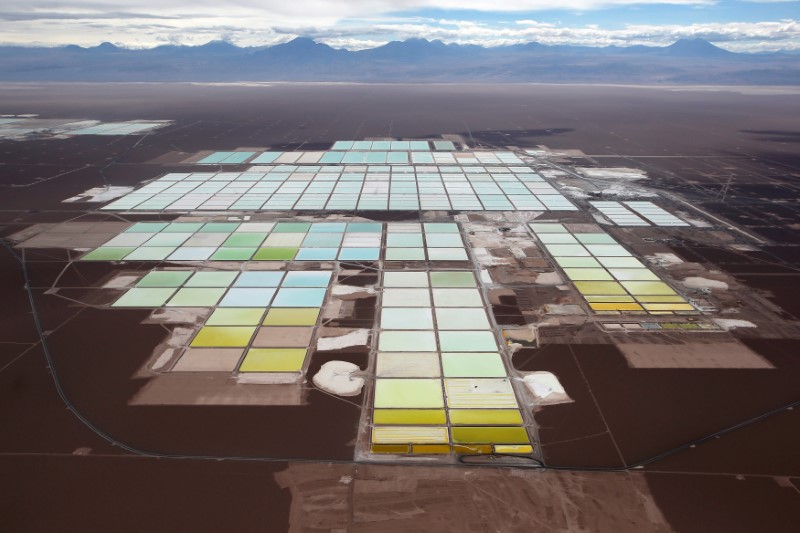* New technology makes brine more attractive source
* Possible synergies with Cornwall's planned geothermal energy
* Money enough for at least a year
By Barbara Lewis
LONDON, Aug 14 (Reuters) - British mining company Cornish Lithium has secured 1 million pounds ($1.30 million) to explore for lithium in Cornwall, southwest England, its CEO said, taking the country a step closer to a domestic source of the strategic mineral.
Lithium plays an essential role in electric car batteries, and is produced by evaporation in Latin America, which has been considered the cheapest source. But new technology to extract lithium from brine is helping to make other options more viable. January, Cornish Lithium said it had reached a mineral rights agreement with Canada's Strongbow Exploration SBW.V . then said it needed around 5 million pounds to develop its project to extract lithium from underground hot springs and to supply products to the rapidly growing battery market for electric cars and for power storage.
Jeremy Wrathall, CEO of Cornish Lithium, told Reuters he now expected the project would be cheaper and the million pounds announced on Monday would be enough for at least a year.
The money will be used to decide where to put the first drill holes. Production is at least five years away, Wrathall said, adding the investors brought mineral expertise, as well as funds.
They are Peter Smedvig, founder of investment firm Smedvig Capital, Keith Liddell, a metallurgical engineer and former mining CEO, and Chris von Christierson, director and principal of mining firm Southern Prospecting.
Liddell said in a statement he believed Cornish Lithium could become a very significant player in the lithium industry in Britain and Europe.
The British government is counting on a low-carbon car industry to shore up the economy after the country leaves the European Union. The government has also said it will ban new petrol and diesel cars from 2040, raising the prospect of a huge increase in demand for lithium. a mining engineer who graduated from Camborne School of Mines in Cornwall, said Cornish Lithium also has synergies with a hoped-for mining revival in Cornwall and with development of geothermal energy, which could be used in processing.
The United Downs Deep Geothermal Project is seeking to produce energy with the help of EU and local government money by drilling deep into Cornish granite, which naturally produces heat.
Ryan Law, managing director at Geothermal Engineering, which is helping to develop the project, said drilling should start early next year.
Strongbow Exploration, which will get royalties from any lithium extracted by Cornish Lithium, bought South Crofty, which in 1998 was the last tin mine to close in Cornwall, and aims to bring back tin production there. ($1 = 0.7737 pounds) (Editing by Jane Merriman)
